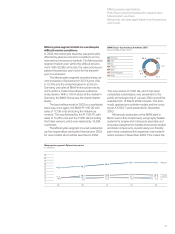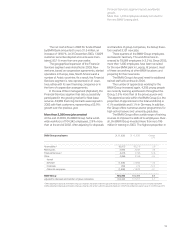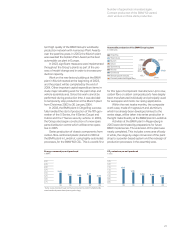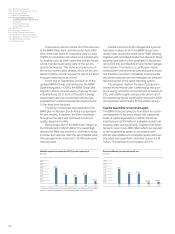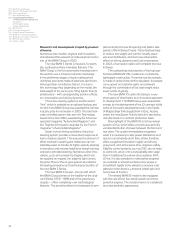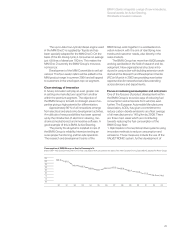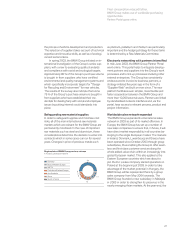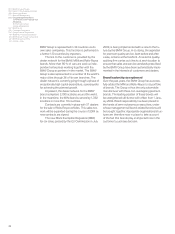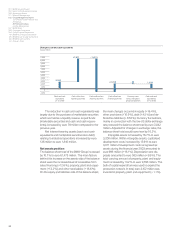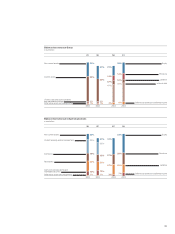BMW 2003 Annual Report Download - page 26
Download and view the complete annual report
Please find page 26 of the 2003 BMW annual report below. You can navigate through the pages in the report by either clicking on the pages listed below, or by using the keyword search tool below to find specific information within the annual report.
25
The up-to-date four-cylinder diesel engine used
in the MINI One D is supplied by Toyota and has
been specially adapted for the MINI One D. On the
basis of the EU driving cycle, it consumes on average
just 4.8 litres of diesel per 100 km. This makes the
MINI One D currently the BMW Group’s most eco-
nomical car.
Development of the MINI Convertible is well ad-
vanced. This four-seater cabrio will be added to the
MINI product range in summer 2004 and will appeal
to customers in the small open-top car segment.
Clear strategy of innovation
In future, innovation will play an even greater role
in setting one manufacturer apart from another
within the premium segment. The objective of
the BMW Group is to build on strategic areas of ex-
pertise giving a high potential for differentiation.
Approximately 90% of all innovations emerge
from electrical and electronic development activities.
A multitude of new possibilities has been opened
up by the introduction of electronic steering, me-
chanics (mechatronics) and innovative software. A
good example of this is BMW Active Steering.
The priority for all systems installed in cars of
the BMW Group is reliability. Intensive testing as-
sures proper functioning and fail-safe operation.
The research and development teams of the
BMW Group work together in a worldwide inno-
vation network with the aim of identifying new
trends and customer needs, also directly in the
sales markets.
The BMW Group has more than 8,600 people
working worldwide in the field of research and de-
velopment. New organisational structures intro-
duced in conjunction with building extension work
started at the Research and Development Centre
(FIZ) in Munich in 2003 are providing even better
opportunities for networked activities extending
across divisions and departments.
Focus on reducing consumption and emissions
One of the focuses of product development within
the BMW Group is to evolve ways of reducing fuel
consumption and emissions from vehicles even
further. The European Automobile Manufacturers
Association, ACEA, has given a commitment to
reduce carbon dioxide emissions as a fleet average
of all manufacturers to 140 g/km by 2008. There
are three main areas which are contributing
towards reducing the fuel consumption of the
BMW Group fleet:
1. Optimisation of conventional drive systems using
innovative methods to reduce consumption and
emissions. These measures include the use of the
VALVETRONIC system, further development of
BMW 5 Series integrates a range of new innovations.
Several awards for Active Steering.
Worldwide innovation network.
90
100.0
91
97.5
92
90.9
93
89.3
94
85.8
95
83.7
96
86.3
97
87.3
98
85.6
99
82.1
00
79.6
0302
74.0
74.3
01
77.3
Consumption of BMW Group car fleet in Germany in %
(Index:1990 =100; basis Germany:
DIN
-1 / 3-mix fleet consumption
VDA
,calculated on the basis of the New EuropeanDriving Cycle(
NEDC
), adjusted forRover Group)
105
100
95
90
85
80
75
70
65




